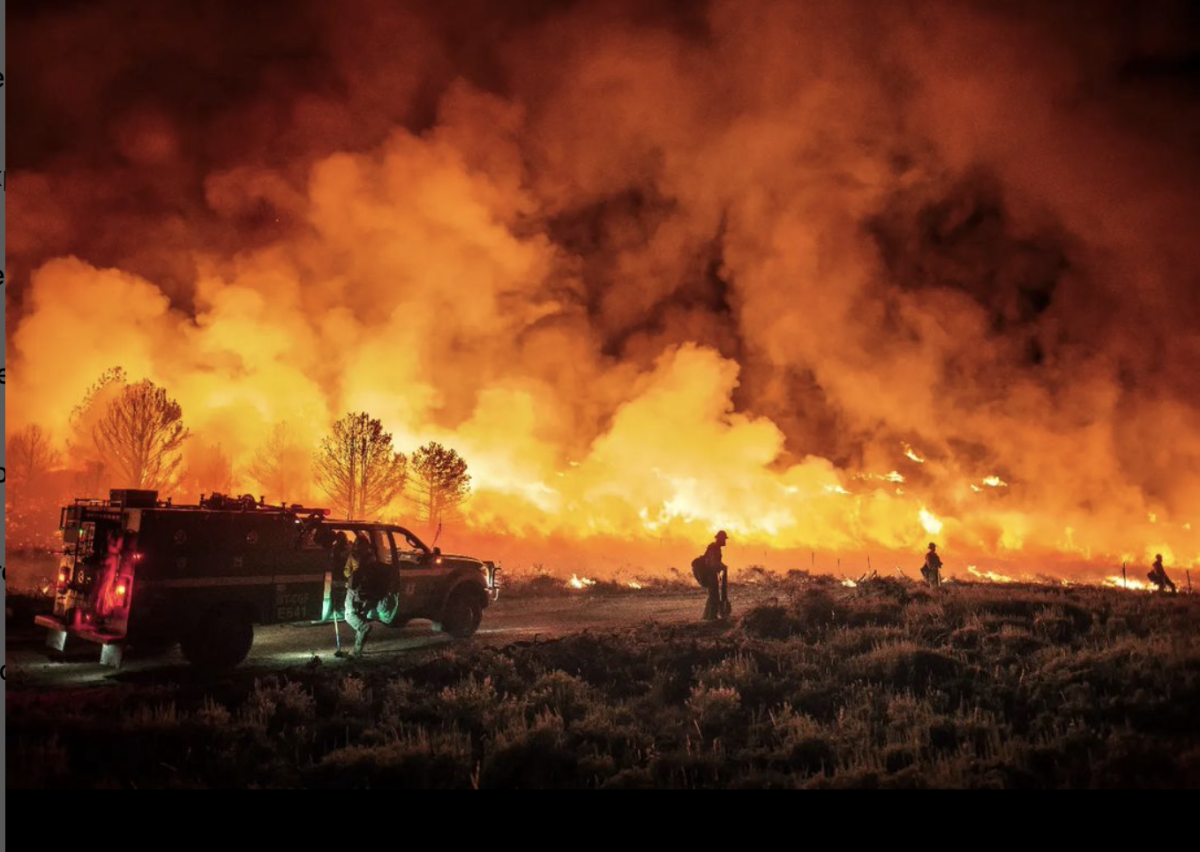Since Aug. 8, wildfires have ravaged the Hawaiian island of Maui leading to the death of more than 110 people and causing significant damage to homes and businesses. After the harm caused by this incident, many local officials have been criticized for their response to the fire. Additionally, there are further concerns about whether tourism is appropriate for Maui at this time as well as long-term consideration of how climate change factors into this disaster.
In regards to local officials, many residents are upset by the lack of preparation and communication in the response to the fire. These critiques are reasonable especially considering that a wildfire occurred in Maui in 2018 under similar circumstances. Despite this past incident, “no wildfire management or other preventative methods were taken to mitigate future disasters” according to Nicholas Krau, the Maui chapter chair for the State of Hawaii Organization of Police Officers. Additionally, first responders also lacked adequate equipment in dealing with the fire as police officers who aided in the incident “suffered smoke inhalation because they didn’t have proper respiratory protection, even after it was requested following previous fires.” Many people were also angered that local officials didn’t use tsunami sirens to warn residents during the wildfire. In response to this critique, “former Maui Emergency Management Agency Administrator Herman Andaya said the protocol is to use the coastal sirens only during tsunami warnings, not during wildfires, and that they feared people would head inland.” Despite tsunami warnings serving a different purpose, local officials should have planned beforehand for separate ways to warn residents about wildfires, especially considering their rising occurrence due to the prevalence of favorable weather conditions.
Wildfires have become common natural disasters and have “quadrupled in Hawaii in recent decades” due to weather factors which cause red flag conditions and make it easier for wildfires to start and spread. These factors include gusting winds, low humidity, lack of rainfall and dry vegetation. Scientists state that while it is “difficult to link the Maui fires to the climate crisis without a thorough analysis… conditions there are consistent with trends that are known as climate changes.” It is no surprise that climate change has impacted Hawaii as it has also “exacerbated the hot and dry conditions that allow wildfires to ignite and grow in many parts of the plane.” Considering these recent climate changes, it is important for officials to not only start planning for short-term solutions to wildfire in terms of equipment and proper communication but also consider the long-term effects of the weather patterns brought on by climate change.
In relation to changing weather conditions and the importance of considering the next steps to these changes, Maui survivors and residents have filed a lawsuit against Hawaiian Electric Company (HECO) because they “‘inexcusably kept their power lines energized’ despite forecasts of high winds that could topple power lines and potentially ignite a fast-spreading blaze.” It has been found that potentially key information on determining the cause of the fire has been compromised according to HECO and that there has been a complaint which states that the fire was “believed to have ignited near a power substation ‘where authorities reported a downed power line early on August 8, 2023.’” In light of this information, it is important for local officials to better their response to wildfires, especially since they will most likely become more common in the future.
On the other hand, there has been a debate about whether tourists should still travel to Maui after the fire. I believe that tourists should still travel to Maui after the fire with some limitations. Richard Bissen, the Maui County mayor, stated that “West Maui is not currently the place for people to go, but the rest of Maui is open.” It is important for tourists to travel to Maui as local businesses need the support and income. This is vital considering that unemployment claims have skyrocketed from about 100 to the thousands and “furloughs and layoffs are starting to pick up because people think the whole island is closed.” While some Hawaiian natives hold a complicated relationship with tourism, it is needed for the economy and would greatly help Maui in recovering more quickly. It is important for tourists to be respectful and sensitive while they visit. If this peaceful relationship is maintained, both tourists and Maui residents will be able to benefit from each other.











































































































































































































